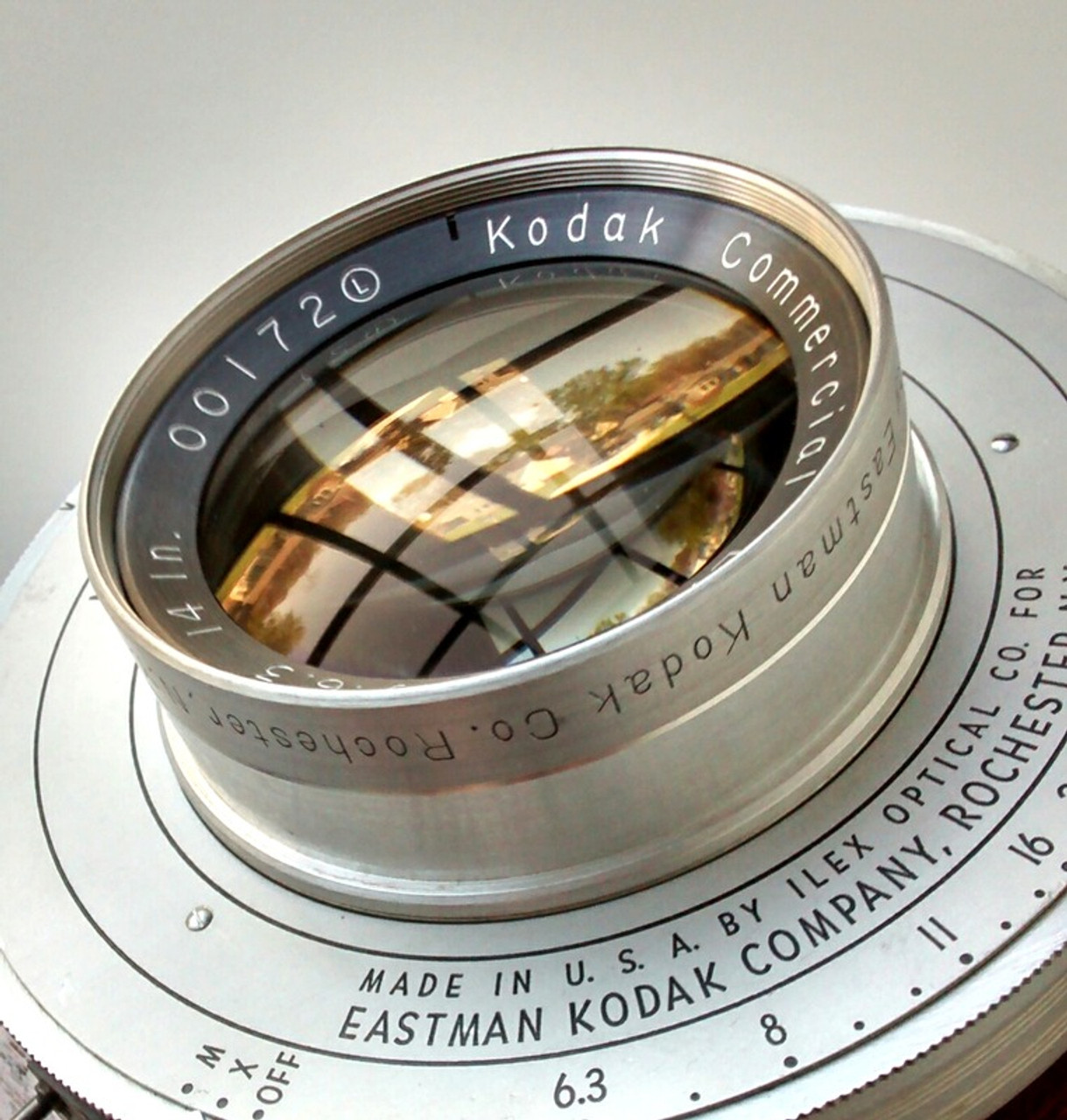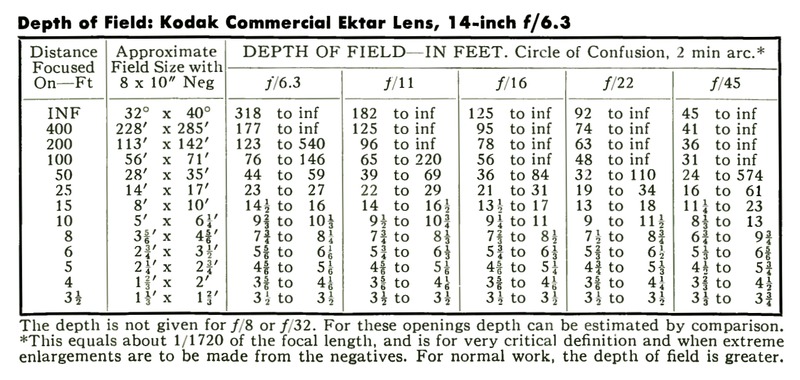Product Description
KODAK COMMERCIAL EKTAR LENS — 14 Inch f/6.3
The photographer should expect more from his lens than its ability to form an image. He should expect that this image be professionally brilliant—at any aperture, and out to the very edges of the film. He should expect that the lens elements be both coated and light-baffled to cut contrast-reducing flare to a minimum. He should expect that its performance with color materials, and that its corrections with respect to color be beyond criticism. Nor should he expect to change focus when he changes stops.
The photographer using a Kodak Commercial Ektar Lens, f/6.3, will find that it lives up to each of these expectations, and that the negatives it produces give him a new standard of quality.
These lenses are made to the highest of standards and to extremely minute manufacturing tolerances. Each air-glass surface is Lumenized — surface treated for flare reduction to improve both clarity and brilliance. They are meant principally for commercial photography, but they can also be used for portraiture, or wherever a brilliant, superbly sharp image is desired. Their angle of sharp coverage at 6.3 is 53°, and at 16, 64°. Thus, at small stops, the next larger film size than that recommended can be used. They are available in barrel with iris diaphragm, or in Ilex Synchro shutter to permit synchronized exposures with any type of flash lamp, or with electronic discharge equipment, such as Kodatron Speedlamps. A flash connecting cord and cable release are supplied with each lens. Note that the 8-inch Kodak Ektar Lens has a maximum aperture of f/7.7. Although somewhat slower at maximum aperture than the f/6.3 lenses, it is well-suited for general picture making, and especially suited to copy work.
14 Inch f/6.3 Commercial Ektar Specifications
T, B, 1 - 1/50 sec.
F and M Flashbulbs
from visual focus
Series IX attachments)
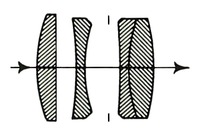
From Camera Techniques for Professional Photographers
These lenses meet the most critical requirements in color photography and are recommended for making exposures with Kodak color sheet films or for making color-separation negatives. It follows, therefore, that they are also suitable for black-and-white picture taking. They are not recommended for enlarging or projection printing. When the lenses are used at maximum aperture, the image size on the ground glass should not be larger than about one-third the subject size. At small apertures they perform satisfactorily even at lens-to-subject distances giving an image size of about 1 to 1.
The Kodak Commercial Ektar Lenses are exceedingly well corrected for lens aberrations, such as coma, astigmatism, curvature of field, and spherical and chromatic aberration, both lateral and longitudinal. The lenses are Lumenized.
The four f/6.3 lenses described here cover at full aperture an angle of 53° and at small stops an angle of 64°. For example, the 14-inch f/6.3 lens covers adequately the recommended negative size (8 x 10 inches) at maximum aperture with allowance for full use of the rising and falling front and swing back. At apertures below f/16 its 64° covering power permits its use on an 11 x 14-inch camera but without allowance for swing back or rising and falling front.
Kodak Commercial Ektar Lenses are available in shutter or in barrel.
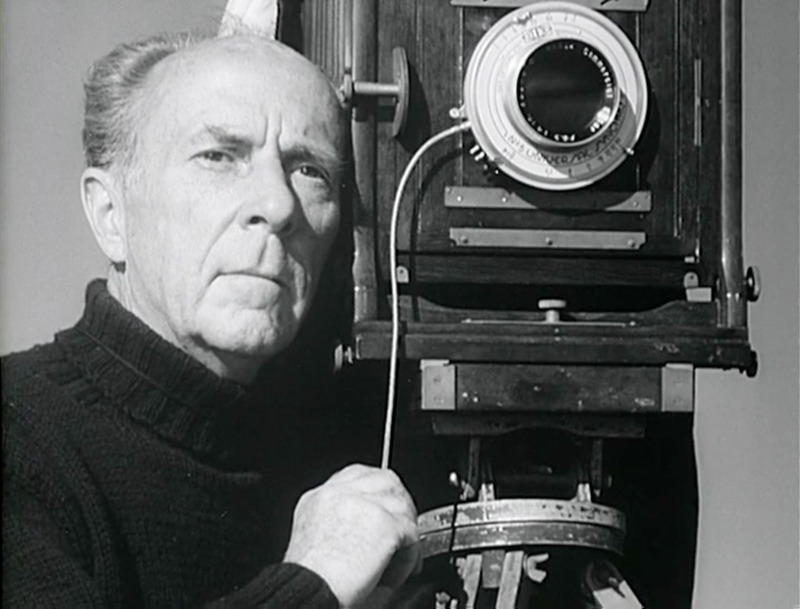
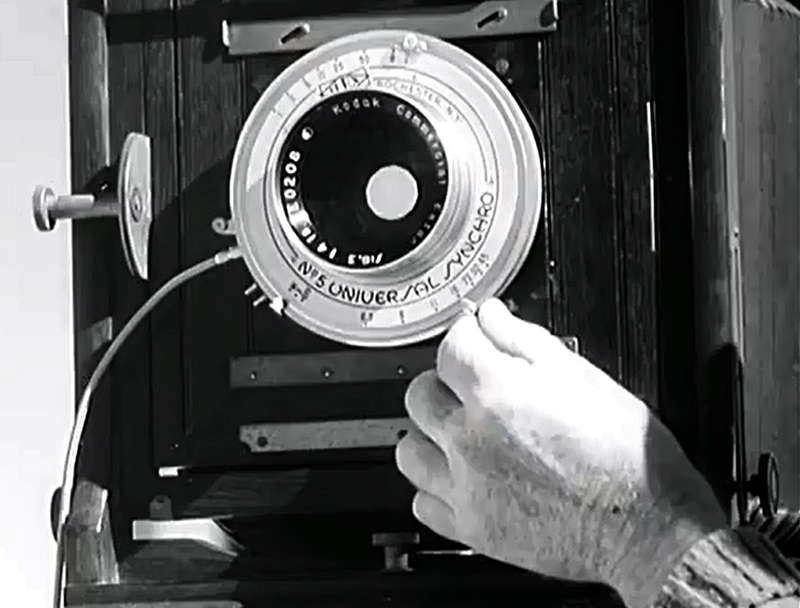
Two frames from Willard Van Dyke's 1948 documentary film The Photographer showing Edward Weston sporting a 14 Inch Kodak Commercial Ektar Lens on his 8 × 10 view camera.
